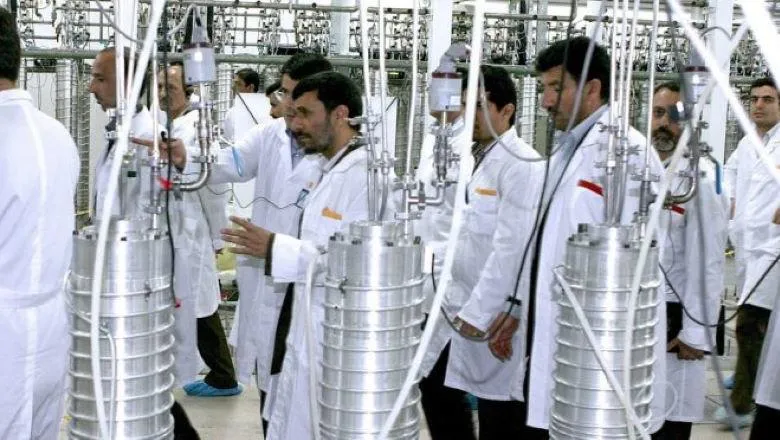22 January 2014
Enforcement action continues in relation to Iran's procurement of pressure transducers
Ian J. Stewart
Iran’s uranium enrichment programme has required the purchase of thousands of pressure transducers, specialist components that measure vacuum conditions inside the enrichment cascade. These items are subject to national and multilateral export controls precisely because of this nuclear utility. Despite these controls, Iran has successfully procured sufficient US-manufactured pressure transducers to run its facilities at Natanz and Fordow: some of these transducers have even been photographed inside Natanz’s Pilot Fuel Enrichment Plant in 2008.

Details of one route through which Iran has been able to procure such items have emerged over the last three years as a result of enforcement action taken against staff of MKS Shanghai Ltd, a wholly-owned subsidiary of MKS Instrument Ltd, the Andover Massachusetts-based manufacturer of a leading range of pressure transducers.[1]
In 2012, a Chinese national named Qiang Hu, who held various roles with MKS Shanghai Ltd including Deputy General Manager, was arrested at Boston’s Logan airport, purportedly as the result of an American sting operation. In summer of 2014, Hu plead guilty to the causing the export of US-origin goods controlled for nuclear proliferation reasons.[2] He was then sentenced to 34 months in prison.
Hu may not have been aware that the goods were destined for Iran’s nuclear programme, although he admits to fraudulently using export licenses and to submitting false information for the purpose of obtaining and using export licences.
Hu is not the only individual allegedly involved with the transfer of pressure transducers to Iran. Another Chinese national, Sihai Cheng, has reportedly also facilitated their supply.
In April, Cheng was arrested at London’s Heathrow airport at the request of the US for the purposes of extradition.[3] At the extradition hearing, Cheng was accused of three crimes: export control violations, fraud, and helping another state to acquire nuclear weapons.[4]
Cheng may have been integral to the overall scheme that resulted in pressure transducers being sent to Iran. It is alleged that he worked with an Iranian national, Seyed Abolfazl Shahab Jamili, who himself is alleged to have supplied goods to Iran’s enrichment programme. [5]
Cheng was extradited to the US late last year and court proceedings in the US are now underway. As such, more details are likely to emerge from this case. For now, it is clear that the US authorities are continuing to use the full range of tools available to it in pursuing those allegedly behind what must amount to one of the most important export control violations involving US technologies in recent years.
[1] See for example, Stewart, I.J., Stricker, A., Albight., D, “Chinese Citizen’s Involvement in the Supply of MKS Pressure Transducers to Iran: Preventing a Reoccurrence”, available online at: http://isis-online.org/uploads/isis-reports/documents/MKS_China_30Apr2014-final.pdf (Accessed 20/01/2015)
[2] “Government Sentencing Memorandum”, United States District Court, District of Massachusetts, Crim No 10-10188-PBS
[3] “US accuses Chinese man of breaching Iran nuclear sanctions”, BBC news, 4 April 2014. Available online at: http://www.bbc.co.uk/news/world-us-canada-26892568, accessed 20/01/2015
[4] A representative of Project Alpha attended the extradition hearing.
[5] “Indicted Chinese National Lands At Boston’s Logan Airport To Face Federal Prosecution For Supplying Iran With Nuclear Production Parts”, Department of Justice, December 5, 2014
